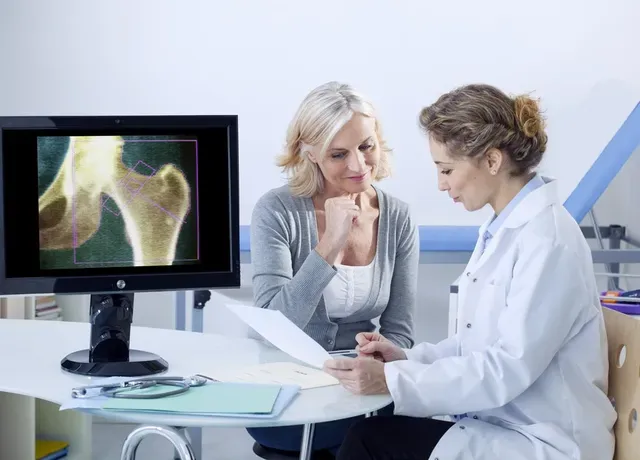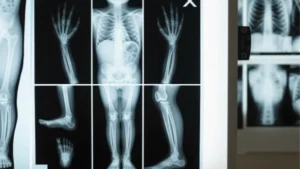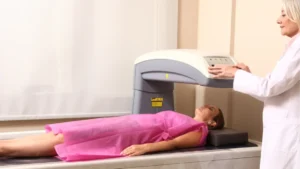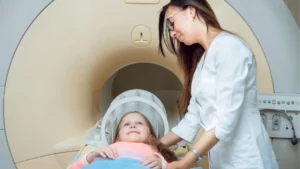The likelihood of developing osteoporosis — a medical condition that causes bones to become weak and brittle depends on how much bone mass you attain at the age of 30 and how rapidly you lose it after that.
The likelihood of developing osteoporosis — a medical condition that causes bones to become weak and brittle depends on how much bone mass you attain at the age of 30 and how rapidly you lose it after that.
Though osteoporosis would only be suspected after you broke a bone, however, a bone density test can help evaluate your risk of breaking bones.
Getting a bone density scan can tell you whether your bones are at average or very low density. The results predict your risk of a fracture, so you can start taking steps to prevent one.
Why Do You Need It?
These scans use X-rays to measure how many grams of calcium and other bone minerals are packed in your bone. The bones commonly tested are; spine, hip, and sometimes the forearm.
The higher your bone mineral content, the less likely they are to break.
Who Should Get A Bone Scan?
It is not common for people aged below 65, but your doctor may recommend a bone density test if you’ve:
- Bone damage in a minor accident.
- Family history of osteoporosis.
- Smoking Drinking heavily.
- A low body weight.
- Corticosteroid drugs usage
- Vitamin D deficiency.
- Hormonal Imbalance
- You’re 50 or older.
You may need a follow-up test after a few years, depending on your first test results.
Why People Aged Under 60 Don’t Need The Test
- Severe bone loss is not common in most people.
People under 50 have a low risk of breaking a bone. They either have no bone loss or a minor one called osteopenia.
- The bone density test is a risky one.
There are many risks as a bone-density test gives out a small amount of radiation, which tends to add up. These effects can stay in your body over your life, so it is best to avoid them if you can.
- Lack of information about the test.
A bone density test can confirm that you have low bone density, but it can’t tell you why. To answer that question, you need a complete medical evaluation.
How Can You Keep Your Bones Strong?
Keep in mind Your bones don’t reach their greatest density until you are 30 years old. So for people younger than 30, anything that helps increase bone density will have more extended benefits:
- Exercise –
- This is by far the best practice for your bones. One can start just by walking. When you walk, your bones bear the weight of your whole body. It builds and strengthens muscles and helps maintain bone mass.
- If not, the gym is also an excellent option—a combination of weight lifting and cardio workout for at least 45 minutes a day would do your bones right.
- Get your daily dose of calcium and vitamin D –
- They help keep your bones fit.
- Aim for at least a consumption of above 1000 mg calcium per day. Eat calcium-rich foods, such as dairy products, leafy green vegetables, and canned sardines and salmon. If you fail to alter your diet, you can easily incorporate a calcium pill each day.
- Sit in the sun for a raw intake of vitamin D, especially if you are a woman in menopause. Take 800 IU a day.
- Limit smoking and Alcohol –
- Among other things, smoking and drinking alcohol can speed up bone loss.
- Try a stop-smoking program – Ask your healthcare provider about a nicotine patch or other treatments that can eventually help you quit.
- Restrict yourself to one drink a day for both men and women – unless you have medical reasons for even tighter limits.
Let Us Be Of Service To You
Understand and implement these basic yet essential tips for better bone health. If you are worried about your bones’ health, you can schedule your Bone Density Test at One Step Diagnostic today!




